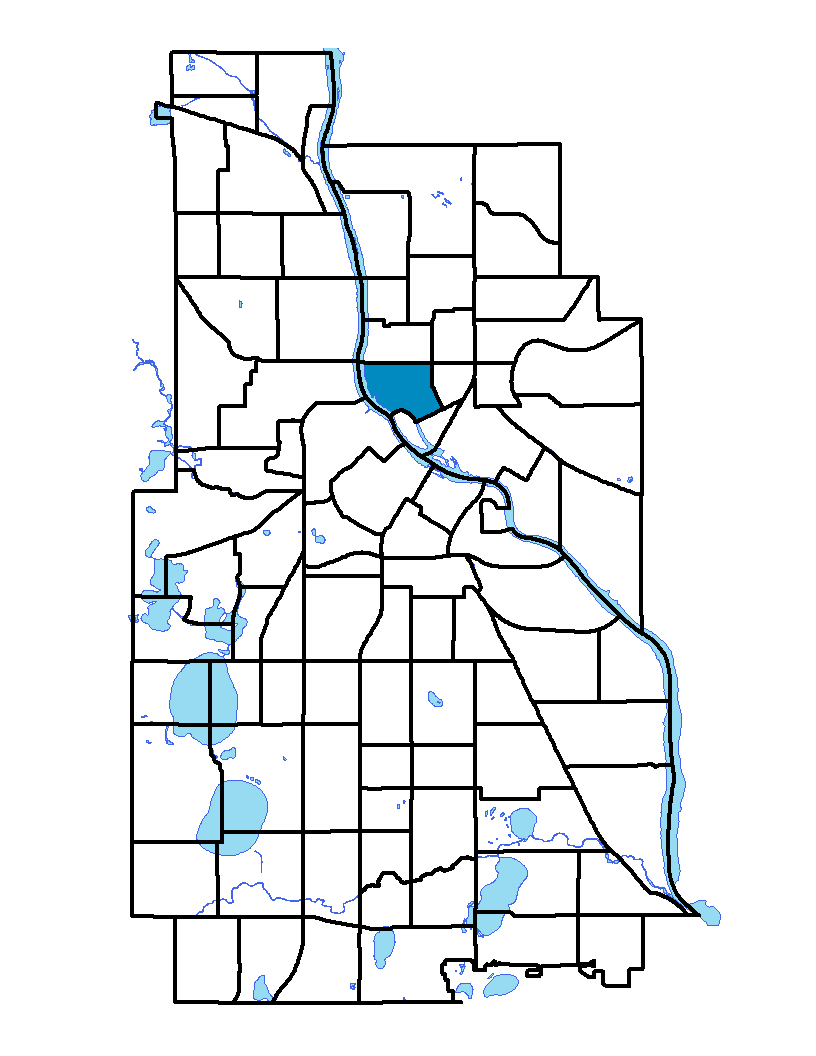St. Anthony West is one of the oldest neighborhoods in Minneapolis as part of northeast Minneapolis. Our historic neighborhood was established in 1849 on the banks of the Mississippi River as the Village of St. Anthony Falls. Later, we were merged with the new city of Minneapolis in the late 1850s. The neighborhood is within walking distance of downtown and the University of Minnesota. St. Anthony West is also host to Boom Island Park, a 14-acre riverside park. St.Anthony West is well known for the lighthouse on the Mississippi River located on Boom Island near the Plymouth Avenue Bridge. It is not a functional lighthouse but a landmark.Today, we are proud and pleased to be a part of the transformation taking place along the river in northeast Minneapolis.
To learn more about the neighborhood association visit: www.stawno.org
Indicator Details
| Indicators | Primary Domain | Indicator Value |
Rank |
Tier |
|---|---|---|---|---|
| Reading Proficiency | Educational Opportunities | -% | - | Data N/A |
| School Proximity to Traffic | Environmental Hazards | -% | - | Data N/A |
| Chronic School Absence | Health Systems and Public Safety | -% | - | Data N/A |
| High School Graduation Rate | Educational Opportunities | -% | - | Data N/A |
| School Readiness Scores | Educational Opportunities | -% | - | Data N/A |
| Food Desert | Neighborhood Characteristics | -% | - | Data N/A |
| Residential Proximity to Traffic | Environmental Hazards | 0.0% | 1 | Top |
| Offsite Alcohol Outlets | Neighborhood Characteristics | 1 | 6 | Top |
| Low Birth Weight | Health Systems and Public Safety | 2.9% | 8 | Top |
| Blood Lead Levels in Children | Housing | 1.2% | 9 | Top |
| Business Retention | Economic Health | 6.2% | 10 | Top |
| Age of Housing | Housing | 68.7% | 16 | Top |
| Pedestrian Connectivity | Transportation | 176.3 | 16 | Top |
| Preschool Enrollment | Educational Opportunities | 68.9% | 16 | Top |
| Violent Crime | Health Systems and Public Safety | 33.4 | 21 | Top |
| Long-Term Unemployment | Employment Opportunities | 4.3% | 22 | Top |
| Voter Participation | Social Cohesion | 34.7% | 24 | Top |
| Walkability | Neighborhood Characteristics | 70 | 25 | Top |
| Access to Parks and Open Space | Natural Areas | 11.6% | 25 | Top |
| Access to Mainstream Financial Services | Economic Health | 17.7% | 30 | Middle |
| Household Transportation Costs | Transportation | 16.0% | 30 | Middle |
| Adult Educational Attainment | Educational Opportunities | 93.0% | 32 | Middle |
| Travel Time to Work | Employment Opportunities | 21.7 minutes | 32 | Middle |
| Vacancy Rates | Housing | 6.9% | 39 | Middle |
| Transit Accessibility | Transportation | 325.5 | 41 | Middle |
| Commute Mode Share | Transportation | 29.4% | 42 | Middle |
| Proximity to Brownfield Sites | Environmental Hazards | 5.2% | 44 | Middle |
| Preventable Hospitalizations | Health Systems and Public Safety | 2.8 | 45 | Middle |
| Excessive Housing Cost Burden | Housing | 29.5% | 46 | Middle |
| Residential Mobility | Social Cohesion | 78.6% | 47 | Middle |
| Public Assisted Households | Employment Opportunities | 22.0% | 48 | Middle |
| Tree Cover | Natural Areas | 27.9% | 50 | Middle |
| Motor Vehicle Collisions | Health Systems and Public Safety | 13.9 | 63 | Bottom |
| Employment Rate | Employment Opportunities | 61.9% | 65 | Bottom |
| Proximity to Superfund Sites | Environmental Hazards | 70.7% | 70 | Bottom |
| Local Business Vitality | Economic Health | 43.4% | 80 | Bottom |
| Toxic Releases from Facilities | Environmental Hazards | 100.0% | 84 | Bottom |

